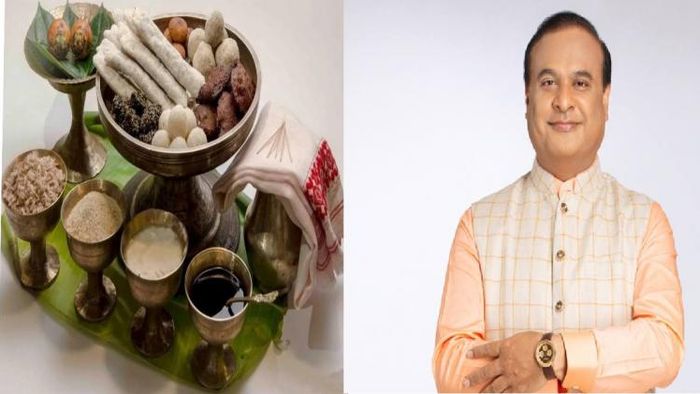Assam : CM Himanta Biswa Sarma greets people on Bhogali Bihu
Magh Bihu is is celebrated in Assam to mark the end of the harvest season.

- Jan 13, 2023,
- Updated Jan 13, 2023, 7:45 PM IST
Chief Minister Himanta Biswa Sarma on January 13 greeted the people of Assam on the occasion of Bhogali Bihu.
In a statement, CM Sarma said, “I extend my heartiest wishes to the people of Assam on the occasion of Bhogali Bihu. This bihu is the festival of abundance which provides an opportunity to our people to celebrate our intrinsic relations with our nature. It is also an occasion to celebrate the abundance provided by agriculture. Hope the celebrations besides giving us an opportunity to promote our culture, strengthens the bond of friendship and camaraderie cutting across all divides.”
He also said, “Let the Mejis and the tradition of putting in on fire consigns all negative forces to strengthen the bond of universal brotherhood in our state. I also hope that the celebrations of Bhogali Bihu throughout the state will fortify our age old bonds existing among our people cutting across all communities and ethnicities”.
Magh Bihu, also called Bhogali Bihu, is observed by the people of Assam. This festival is celebrated to mark the end of the harvest season. It is considered as the time for thanking the ancestors and the god of agriculture for a bountiful harvest and good life. The celebration of Magh Bihu typically takes place in January.
This auspicious festival is going to be marked on 15 January this year according to the traditional calendar of Assam. The date of Magh Bihu varies from year to year on the basis of the lunar calendar. It is believed that Bihu has originated from the word “bishu” which means “to seek for peace”.
During Magh Bihu, the people of Assam feast on the new harvest with their family and friends. They also take part in traditional activities, build temporary huts, and prepare traditional Assamese food and sweets. The temporary huts are burned to symbolise the end of the old and the beginning of the new. The festivity has both agricultural and social significance. It is the time for renewing friendship and brotherhood, and for young men and women to come together.